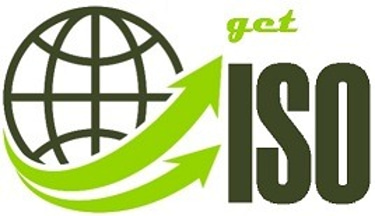ISO 9001 Certification Benefits
Enhance quality assurance with ISO 9001 certification and reap the numerous advantages it offers.
ISO 9001 Certification Benefits
Discover the top 10 advantages that ISO 9001 certification can bring to your quality assurance system.




Quality Assurance Benefits
Improve processes, increase customer satisfaction, and enhance overall efficiency with ISO 9001 certification.
Quality System Enhancement
ISO 9001 certification offers streamlined operations, risk management, and a competitive edge in the market.
ISO 9001 certification improved our quality assurance system significantly. Highly recommend it!
John Doe


★★★★★
Predict the future
The significant impact of ISO 9001 certification on enhancing customer satisfaction, improving operational efficiency, and boosting marketability and competitive advantage for businesses are:
Enhanced Customer Satisfaction:
ISO 9001 ensures consistent quality in products and services
Focuses on meeting and exceeding customer expectations
Improves communication channels with customers
Increases reliability and builds trust
Leads to better customer feedback analysis and action
Improved Operational Efficiency:
Adopts a process-oriented approach with the Plan-Do-Check-Act cycle
Standardizes procedures and reduces errors
Emphasizes performance metrics for data-driven decision-making
Implements regular internal audits for continuous improvement
Boosted Marketability and Competitive Advantage:
Demonstrates commitment to quality and continuous improvement
Serves as a powerful marketing tool
Attracts a broader customer base
Differentiates the company from competitors
Increases business opportunities and customer retention
Companies that have benefited from ISO 9001 certification, highlighting improved customer satisfaction scores, higher client retention rates, and increased business opportunities.
Overall, ISO 9001 certification is presented as a valuable asset for businesses looking to enhance their quality management systems and gain a competitive edge in the market.


Enhanced Customer Satisfaction
ISO 9001 certification plays a pivotal role in elevating customer satisfaction by ensuring a consistent level of quality in products and services. By setting rigorous standards for quality assurance processes, the certification underscores the importance of meeting customer requirements and often surpassing their expectations. A hallmark of ISO 9001 is its strong focus on customer satisfaction metrics, requiring companies to continuously collect, analyze, and act upon customer feedback.
Companies that adopt ISO 9001 standards typically find that better communication channels are established with their clientele. The certification mandates clear documentation and transparent communication processes, which serve to keep customers well-informed and build trust. This improved dialogue allows companies to more accurately gauge customer needs and preferences, leading to tailored solutions that are more likely to exceed customer expectations.
Increased reliability is another benefit that ISO 9001 certification brings to the table. When a company adheres to these internationally recognized standards, it instills confidence in customers regarding the consistency and reliability of its offerings. Customers are assured that the products and services they receive will meet a predefined standard of quality, thereby enhancing their overall satisfaction.
Take, for example, a manufacturing firm that implemented the ISO 9001 quality management system. The company reported significant improvements in customer satisfaction scores, attributing this success to the structured approach mandated by the certification. By focusing on key performance indicators (KPIs) related to customer feedback and operational efficiency, they were able to identify and remedy areas of concern swiftly. This not only improved the reliability of their products but also increased customer trust and loyalty.
Similarly, in the service sector, a business services provider with ISO 9001 certification noted enhanced client relationships. The structured quality management processes allowed them to continuously monitor service delivery and make real-time adjustments based on customer feedback. As a result, they experienced higher client retention rates and more favorable reviews.
Overall, ISO 9001 certification proves to be instrumental in fostering an environment where customer satisfaction is not just a goal but an ongoing commitment, backed by a systematic and meticulous approach to quality assurance.
Achieving ISO 9001 certification can significantly enhance operational efficiency within an organization. By adopting a process-oriented approach, ISO 9001 emphasizes the importance of efficiency and continuous improvement, which leads to streamlined operations. One of the core principles of ISO 9001 that facilitates these improvements is the Plan-Do-Check-Act (PDCA) cycle. This iterative cycle enables organizations to plan activities, execute them, check outcomes against the desired objectives, and act based on those findings to foster continuous progress. This cyclical process ensures that improvements are not only made but also sustained over time, thereby enhancing operational performance.
ISO 9001 certification mandates the documentation of procedures, integrating standardized practices across the organization. These documented procedures act as a blueprint for employees, ensuring that everyone understands their roles and responsibilities, leading to a more organized workflow. The presence of standardized procedures also aids in reducing redundancies and miscommunications, thereby minimizing errors and waste. This structured approach facilitates smoother operations and helps in identifying and eliminating inefficiencies in the system.
Additionally, ISO 9001 places a strong emphasis on performance metrics, which enable organizations to measure various aspects of their operations. By monitoring key performance indicators (KPIs), companies can gain valuable insights into their operational effectiveness. These insights allow for data-driven decision-making, which further optimizes processes and resources. Consistent measurement and analysis guide organizations in pinpointing areas that require improvement, aligning efforts with strategic goals.
Internal audits are another crucial component of ISO 9001 certification. Regular internal audits help in verifying that an organization's operations comply with the established procedures and standards. These audits provide an opportunity for continuous monitoring and evaluation, ensuring that any deviations from the standards are promptly identified and corrected. This vigilance fosters a culture of quality and accountability within the organization. By addressing discrepancies proactively, internal audits enhance overall efficiency, resulting in better resource utilization and risk management.
Enhanced Marketability and Competitive Advantage
Achieving ISO 9001 certification provides a significant boost to an organization's marketability and competitive edge. By attaining this globally-recognized standard, an organization transparently showcases its unwavering commitment to quality. This assurance of quality greatly enhances the company’s appeal to potential clients and partners who prioritize reliability and high standards. Such certification serves as a testament to the organization’s devotion to continuous improvement and customer satisfaction, fostering trust and credibility in the marketplace.
From a marketing perspective, ISO 9001 certification becomes a powerful tool. The certification symbol is often displayed on promotional materials, websites, and product documentation, signaling to stakeholders that the organization meets internationally-accepted quality management standards. This strategic marketing approach can attract a broader customer base, as consumers and businesses are more inclined to engage with and invest in companies that demonstrate quality assurance. Furthermore, the certification elevates the company's standing, differentiating it from competitors who may lack similar credentials.
Case studies illustrate the tangible benefits of ISO 9001 certification. For instance, a manufacturing firm reported a 15% increase in new business opportunities within the first year of obtaining the certification. This growth was largely attributed to new clients who valued the documented quality assurance processes and the company's dedication to meeting and exceeding customer expectations. Similarly, a service-based company experienced a significant boost in customer retention and satisfaction rates, as the certification underscored their commitment to continual improvement and operational excellence.
In an increasingly competitive marketplace, ISO 9001 certification acts as a differentiator. It elevates a company’s profile, enhances its reputation for quality, and opens up avenues for new business by building trust with potential clients and partners. This commitment to maintaining high standards not only strengthens existing relationships but also attracts new clientele, ultimately contributing to the overall growth and success of the organization.


